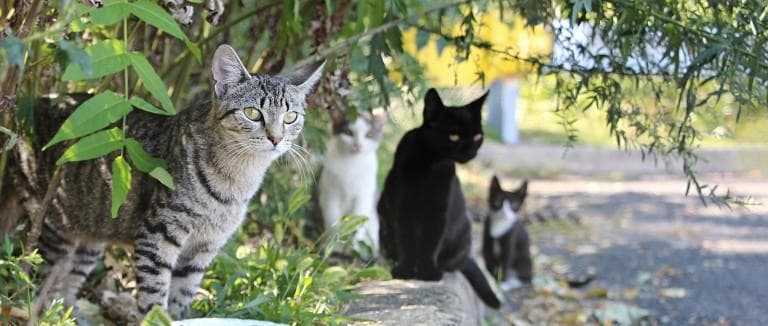March is Poison Prevention Month and Basepaws wants to make sure you have as much information as possible to keep your cats out of harm’s way. We have a comprehensive list of household items to avoid and numbers to call if you think your cat has ingested something they shouldn’t have.
Ant Baits: These contain boric acid which is toxic to cats if eaten in a large amount. Ant baits have a sweet smell and taste to attract ants but it also appears to attract cats.
Antifreeze (ethylene glycol): Antifreeze is a very common cause of poisoning in cats because they find both the smell and taste appealing. A lethal dose of antifreeze is 1.5 ml/kg or ½ of a fluid ounce. The signs of antifreeze poisoning are as follows:
A drunken appearance within one hour of ingestion.
Within 12-24 hours of ingestion - heart failure, renal failure, vomiting, depression, renal pain, hypothermia, coma, and death.
Fertilizers: Fertilizer products contain varying amounts of nitrogen, phosphorous, and potassium compounds in liquid, granular, or solid forms. They often contain additives such as herbicides, insecticides, and fungicides. Since fertilizers are usually a combination of ingredients, the effects may vary. They usually cause mild to moderate gastrointestinal distress such as vomiting, diarrhea, hypersalivation, and abdominal pain. Symptoms will be more severe if a larger amount is ingested and may also be caustic, causing irritation of the lining of the gastrointestinal tract.
Rat or mouse bait: These are a common cause of cat poisoning. Most rodent poisons use anti-coagulants that kill the animals by causing uncontrollable bleeding and these baits are designed to attract animals so consider the use of them very carefully and try to use alternatives where possible. Signs of rodenticide ingestion appear one to four days after ingestion, they include depression, weakness, coughing and staggering. Most people don't realize that eating a poisoned rodent can also poison your cat.
Insecticides: These usually contain organophosphates and carbonates which are highly toxic to cats. Signs of ingestion include vomiting, diarrhea, hypersalivation, muscle tremors, and seizures.
Snail and Slug Bait: Molluscacides come in a variety of forms and may be mixed with other toxins. The effects of ingestion include anxiety, elevated heart and respiratory rates, loss of coordination, severe muscle tremors, and death. Ingestion can be fatal and there is no antidote.
The list of plants that are toxic to cats is very long and can be found here.
What To Do If Your Cat Is Poisoned
Don't panic. Rapid response is important, but panicking can interfere with the process of helping your pet. Take the time to safely collect any items involved in the poisoning. This will help your vet as they determine what poison or poisons are involved. Also, collect any material your pet may have vomited or chewed in a sealable plastic bag.
If you witness your pet consuming something you suspect might be toxic, do not hesitate to seek emergency assistance, even if you do not notice any adverse effects. Sometimes an animal may appear normal for several hours or even days after eating or drinking something poisonous.
Do not try to make your cat vomit unless instructed to do so by your veterinarian.
You can also contact the ASPCA Animal Poison Control Center at (888) 426-4435.
For a list of common foods that are toxic to cats, click here.



